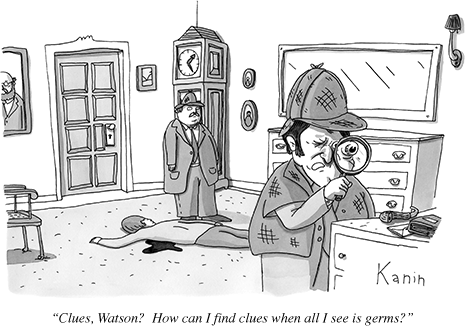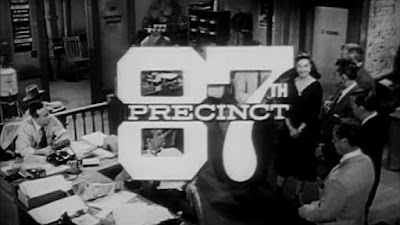(Post-Hurricane Helene Edition)
IT'S time to infiltrate the Halls of Academe once again. All too often the denizens of academia come up with nearly unrecognizable versions of our favorite, comparatively harmless literary subsubgenre, detective fiction. Whether they have discovered in the stories and their authors such subtexts as subliminal psychosexual confessions, cryptopolitical tendencies, uncon-scious sexism/racism, and/or stuff like that there, or whether they have imposed those things onto their analyses because of their peculiar biases, is necessarily left up to the reader, that's you, to discern.
Today's author takes a different tack, however, in a paper not only pre-dating the post-modern explosion but even the Internet itself, one that contemplates the very basic
question of . . .
"What Is the Appeal of Detective Fiction?"
By Gavin Holman (April 1981).
Article (7 pages).
Online at ResearchGate (HERE).
"The detective story in its various forms is one of the major fields of work in contemporary English literature."
IS it just us, or do librarians seem more sympathetic to and tolerant of detective fiction than their academic colleagues?
Notable quotes:
"The detective story is one in which the primary interest lies in the methodical discovery by rational means of the exact circumstances of a mysterious event or series of events, usually posing a puzzling problem concerning a crime. The mystery and crime stories are often considered analogous to the detective story although, ideally, they should be considered as separate."
"However, with the detective story, the requirement is not a fast moving piece of descriptive writing or an unresolved mystery. The interest is an intellectual one."
"There are three basic elements to detective fiction: The crime or event which forms the mystery basis for the story. The detective. And a series of observations and events, trivial, commonplace and apparently unconnected."
"If the detective did not solve the mystery, the story would no longer be classified as a detective story, it would then be a crime novel or a mystery novel depending on conditions."
"However, I feel that the appeal of detective fiction lies mainly in the fact that it is essentially an intellectual challenge or an admiration of the prowess of the detective."
"Uncertainty is a vital factor in the detective story."
"Clues are perhaps the most renowned aspect of detection. Their quality and inconsequentiality often determine the quality of the story."
"Material clues offer the author a vast range of possibilities."
"Consequently the modern detective uses his talents to investigate the immaterial clues, those of the situation, alibis, motives, contradictions and opportunities."
"The clues formed by non-material things are of an even more diverse variety, not being restricted to the absolute quantities and qualities of solid objects."
"In the 1920s the detectives continued to be rather eccentric amateurs, but rather less antisocial and remote, and there was a trend towards ordinariness. . . . The detective stories of this time reflected the general trend in art, and ignored the inequalities and tragedies of real life to take the reader into a fairy-tale land where murder was committed over and over again without anyone getting hurt."
"He [Poirot] spurns the Holmesian method and the aid of science, relying totally on the use of theory and logical thinking over matter."
"The use of various devices which characterize detective novels is almost universal. However, most of them have become clichéd or have roused feelings of unjustness amongst readers."
"[Philo Vance] conducted his cases with a resigned superiority."
"The irrelevance to real life and remoteness of Van Dine's stories followed the general trend of the times."
"The locked room mystery is an evergreen plot in detective fiction and the variations on this theme must exceed those on any other."
"The trend towards the end of the 1930s and through the Second World War was towards greater realism and more attachment to everyday life and the man in the street."
"The rebellion of new writers against the accepted format and style of detective fiction was supported by the reading public who seemed to enjoy the change in pace and situation, from the largely leisurely and upper class to the fast and mundane."
"The feeling of triumph and achievement of a detective at the successful conclusion of a case often turns to sadness, disenchantment or weariness."
"In these days of mass communication and information at one's fingertips, the amateur detective is in decline, and the emphasis is on the professional, whether official in the case of the police, or unofficial in the case of the private investigator, and retired examples of both."
"Edmund Crispin, however, manages to inject humour and true charm into his stories."
"The style of detection in Simenon's stories is quiet and routine, with none of the exhilaration of British and American authors."
"I think that a proving of the improbable is perhaps the essence of detective fiction."
Typos: "indentifying"; "the moden detective"; "Hercules" Poirot; "realsim"; "prowress".
Authors, works, and other ideas mentioned in order of appearance:
- Agatha Christie
- The Murder of Roger Ackroyd
- W. H. Auden
- the Arthurian Quest for the Holy Grail
- the Oedipus myth
- Edgar Allan Poe
- Arthur Conan Doyle
- Sherlock Holmes
- "Silver Blaze"
- Dr. James Watson
- Dupin
- Jacques Futrelle
- Professor Van Dusen
- Freeman Wills Crofts
- The Cask
- Inspector French
- Dorothy L. Sayers
- Lord Peter Wimsey
- Bunter
- Harriet Vane
- The Nine Tailors
- campanology
- Gaudy Night
- The Mysterious Affair at Styles
- Hercule Poirot
- Murder on the Orient Express
- Ten Little Niggers
- S. S. Van Dine
- Philo Vance
- John Dickson Carr
- Dr. Gideon Fell
- The Hollow Man
- Ellery Queen
- Frederic Danny and Manfred Lee
- Ellery Queen's Mystery Magazine
- Margery Allingham
- Albert Campion
- Dashiell Hammett
- Raymond Chandler
- The Maltese Falcon
- The Glass Key
- The Thin Man
- the Continental Op
- Sam Spade
- The Big Sleep
- Philip Marlowe
- Michael Innes
- Detective Inspector John Appleby
- Nicholas Blake
- Nigel Strangeways
- The Beast Must Die
- Minute for Murder
- The Worm of Death
- Edmund Crispin
- Dr. Gervase Fen
- The Moving Toyshop
- Love Lies Bleeding
- Ngaio Marsh
- Roderick Alleyn
- Georges Simenon
- Inspector Maigret
- Emma Lathen
- Colin Watson
- H. R. F. Keating
- Inspector Ghote
- Ed McBain
- 87th Precinct
- John Wainwright
- Nicholas Freeling
- Inspector Van der Valk
- Harry Kemelman
- and Rabbi David Small.
- Our previous Miscellaneous Monday concerned John Gruesser's essay "Illustrating Poe's Detection" (HERE).
Unless otherwise noted, all bibliographical data are derived from The FictionMags Index created by William G. Contento & edited by Phil Stephensen-Payne.
~~~~~~~~~~~~~~~~~~~~~~~~~~~~~~~~~~~~~~~~~~~~~~~~~~~~~~~~~~~~~~~~~~~~~~~~~~~~




.jpg)


%20(2).jpg)



.jpg)
.jpg)
.jpg)










%20(3).jpg)


.jpg)






.jpg)






.jpg)

.jpg)

















.jpg)


No comments:
Post a Comment